EN

Papa-livros - Livraria e Galeria © Inês Aleixo
Colourful covers, illustrations that leap off the pages and stories that invite us to imagine (without limits) - this is the proposal not only for the little ones, but also for adults who are enchanted by picture books. These are independent children's bookshops, each with its own personality and history, with one common denominator - to pass on the love of reading. Papa-Livros, Ave Azul and Salta Folhinhas are refuges for those who believe that books open doors of perception and help us understand the world better. Agenda Porto visited these spaces, was enchanted by the visual and poetic narratives and spoke to those who bring them to life.
Papa-Livros, Livraria e Galeria
The book as a space for discovery
Papa-Livros was born in 2007 out of its founder's need for change, and inspired by English bookshops that were ‘very cosy and warm, like a fairytale’. Before opening the bookshop, Adélia Carvalho was a kindergarten teacher and worked with books on a daily basis. The tight routine of teaching and the lack of placement gave her the strength to create a space where she could share her love of stories and, at the same time, stay close to the children. ‘I was tired of the school routine and wanted something that would challenge me intellectually,’ she says.
The Papa-Livros space reflects this desire. It's a bookshop, but it's also a gallery where illustration takes centre stage. Here, the books are displayed like in an art gallery, facing the front so that children can recognise their covers - an approach designed to stimulate the little ones. ‘I joke and say that this was the world's first Instagram,’ she laughs. "Pre-readers can't read, but they recognise the book by its cover. So they have to be able to see them!"
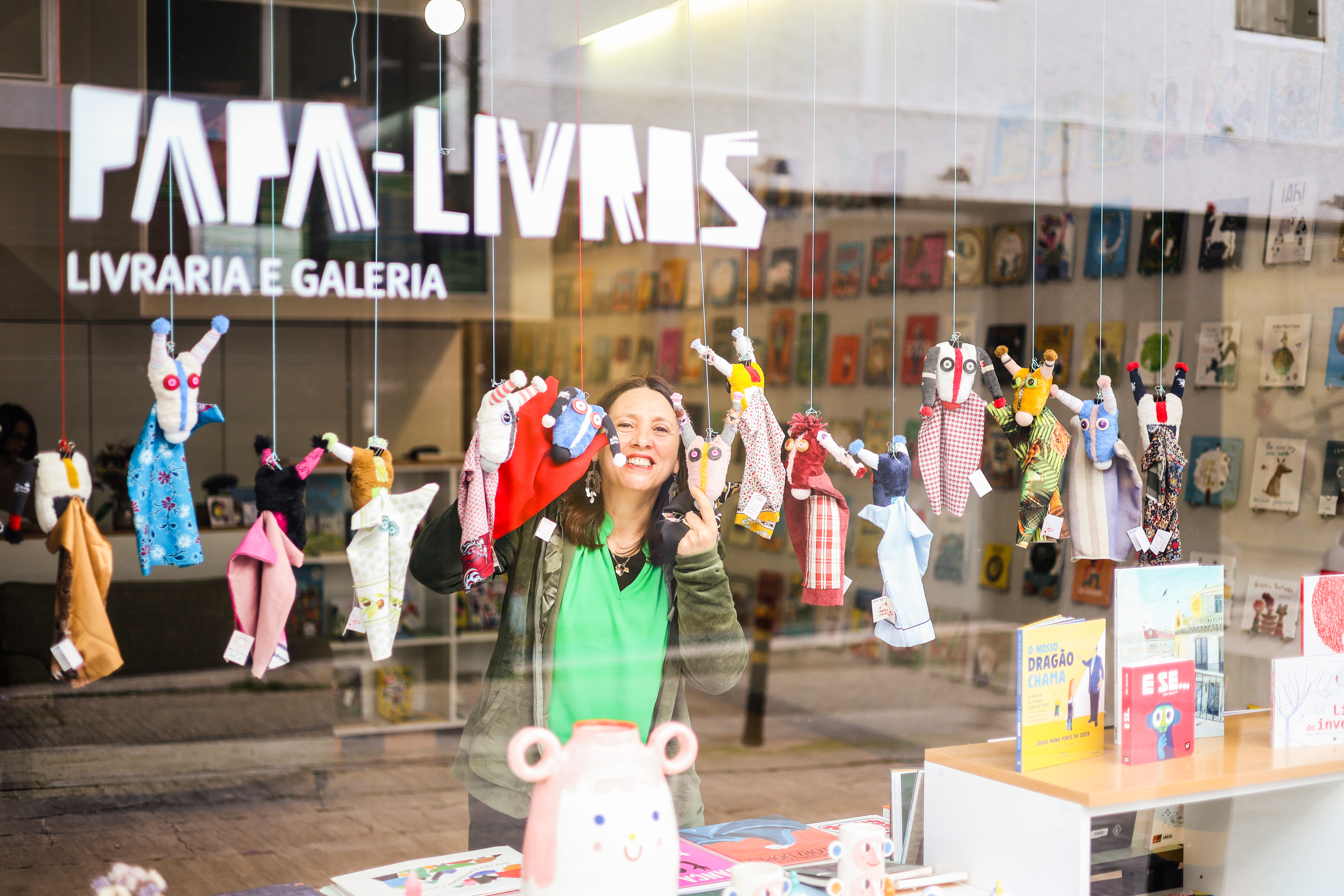
Adélia Carvalho, Papa-Livros © Inês Aleixo
At Papa-Livros, readers are little explorers guided by the stories and knowledge of those who advise them. Parents often come looking for answers to childhood challenges. "What we recommend always depends on the child, on what worries them. There are books for fears, for accepting differences, for talking about death... and there are parents who only realise the power of the stories when they read them with their children."
The bookshop also became the turning point in Adélia's journey as a writer, who is nominated for the Astrid Lindgren 2025 literary prize. ‘Daily contact with books was essential for me to realise what works and what doesn't in writing for children,’ says Adélia, who is the co-founder of Tcharan, a publishing house that focuses mainly on picture books, especially for children.
"It was very important for me to have a literary space to understand even more about writing and literature for children. It allowed me to have more contact with my peers, other writers, and gave me very rich conversations."
All this contact with critics and books led her to reflect on the difference between literature and educational books. ‘Each one has its place, literature can't pretend to educate; then it can serve that purpose, but it doesn't come about for that purpose if it doesn't lose its literary charge,’ she says.
Papa-Livros doesn't have a fixed schedule of events, but from time to time it opens its doors for book presentations, workshops, meetings with writers and storytelling sessions because the magic of stories often happens when we tell them out loud.
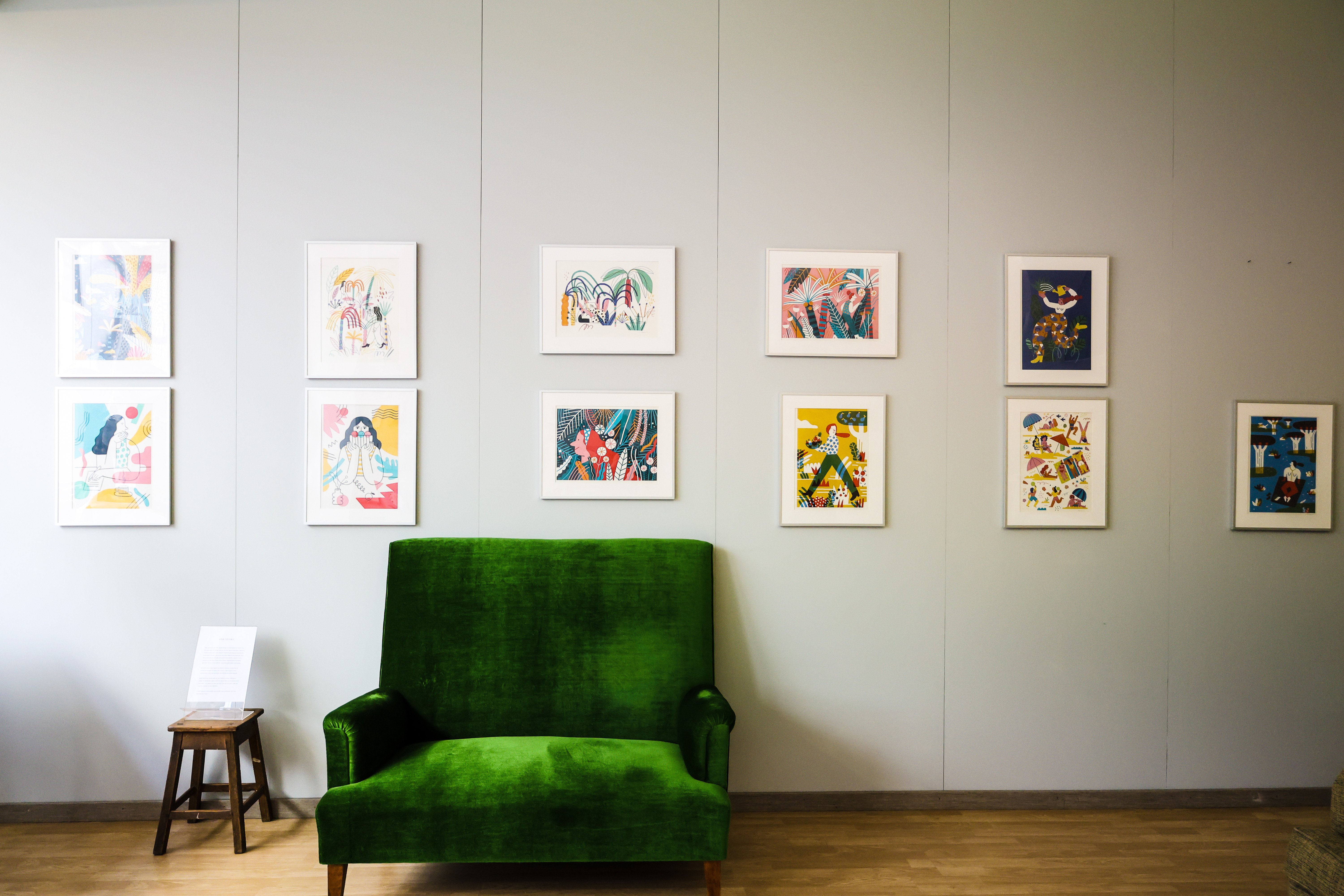
Papa-livros © Inês Aleixo
Adélia Carvalho suggests three books to read as a family in April:
Outra Coisa,
de Katya Adaui
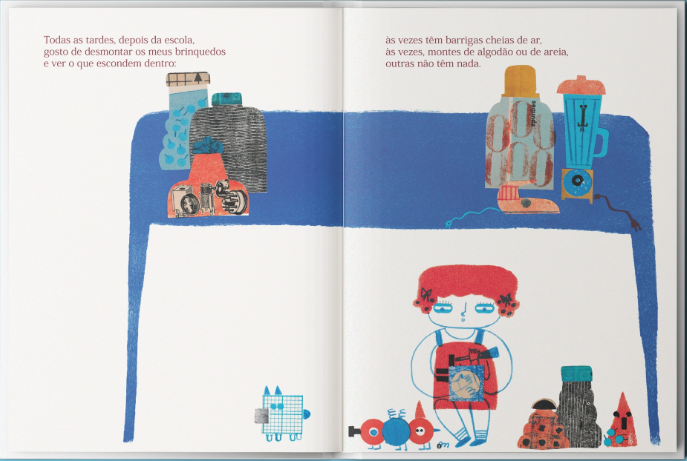
O meu principezinho,
de Adélia Carvalho
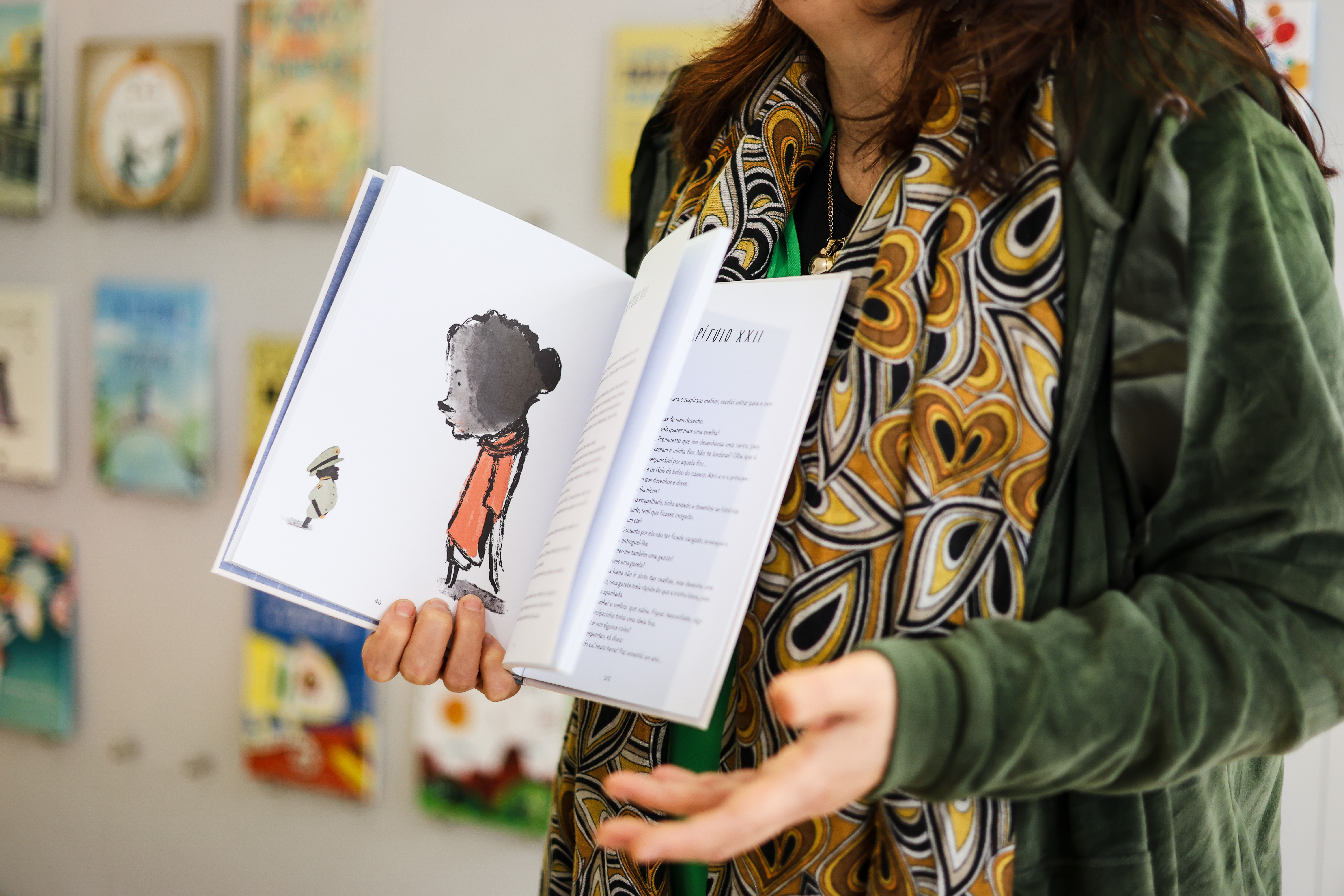
A minha pessoa preferida,
de Kiara Terra
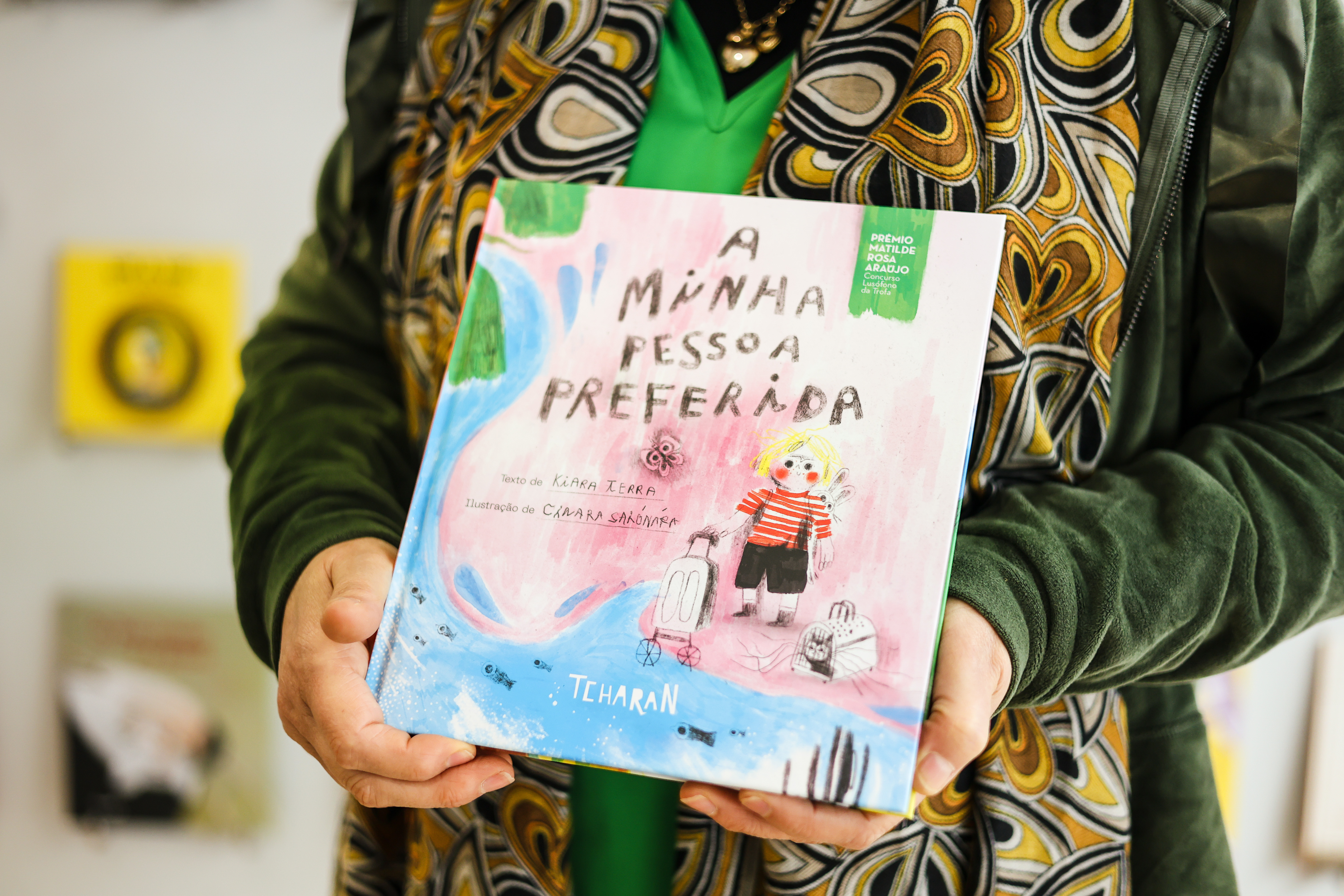
Ave Azul
'It's never too late for an illustrated book'
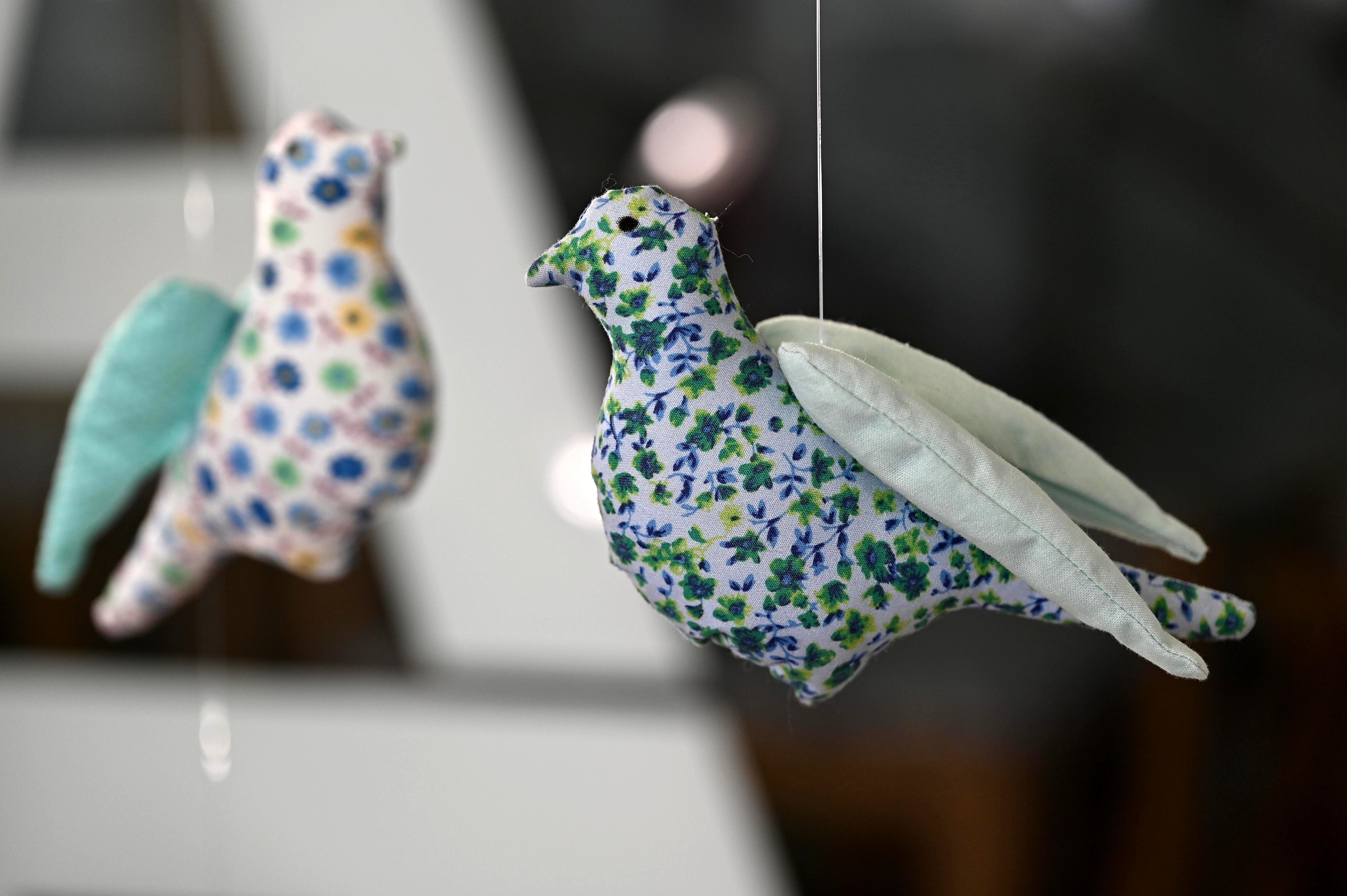
Ave Azul © Rui Meireles
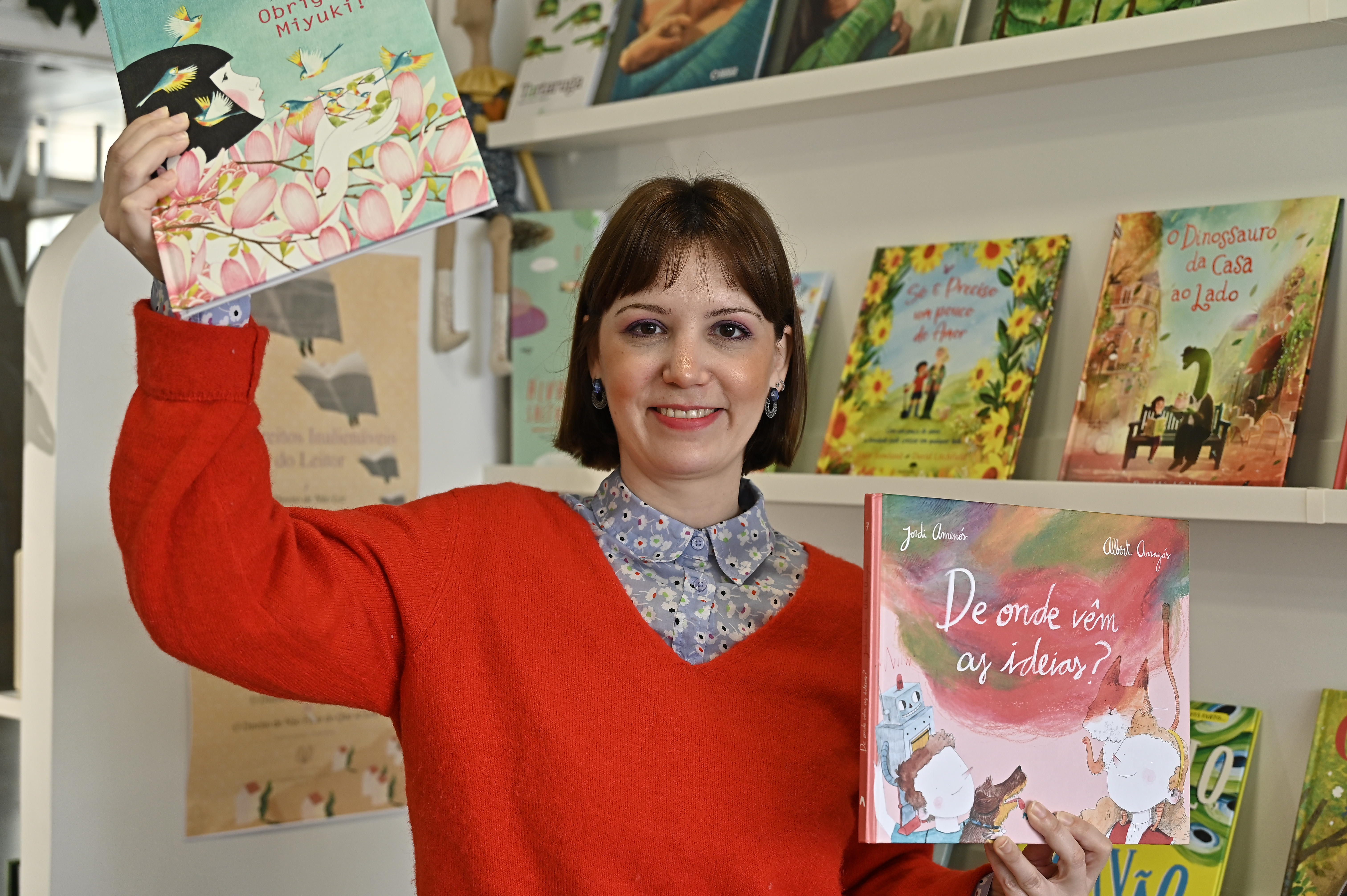
Maria Inês Gomes - Ave Azul © Rui Meireles
Ave Azul is a young bookshop with deep roots. The name is a tribute to the literary and art criticism magazine Ave Azul, published in Viseu between 1899 and 1900. "Blue was very much associated with the Republican struggle. Ana de Castro Osório, who wrote for the magazine, was known for her fight for peace, women's rights and the right to education," says bookseller Maria Inês Gomes. "At the end of the 19th century, literacy was a privilege. These women fought for all children to have access to school. Today, we take that for granted, but I think it's beautiful to remember that past," she emphasises.
The spirit of that publication is reflected in the bookshop that opened its doors in 2022 by the hands of this philosophy teacher who fell in love with illustrated literature when she worked in a children's bookshop, ‘to fill holes while she couldn't find a position in a school’.
It was during this period that she realised how adults, at a certain point, turn away from picture books. "I think we all have a divorce with children's books. We grow up and think they're no longer for us, but if we happen to come across them again, we realise we were wrong to leave them behind," she reflects.
Blue Bird challenges this ‘separation’ imposed by age. Here, a picture book can delight a five-year-old child, but also an adult who appreciates illustration and visual storytelling. ‘Illustrated literature isn't just for children; more and more adults are buying these books for themselves, even without having a child or a nephew to give them to.’
Maria Inês believes that the way we read a book changes over time. "Re-reading a book years later can have a fantastic effect. Our perception changes and we look at the book with different eyes," she says. Today, special care is taken to link text and image. ‘The illustration plays a fundamental role in the book; it also speaks through symbols, helps to integrate the text and allows the sentences to be shorter.’
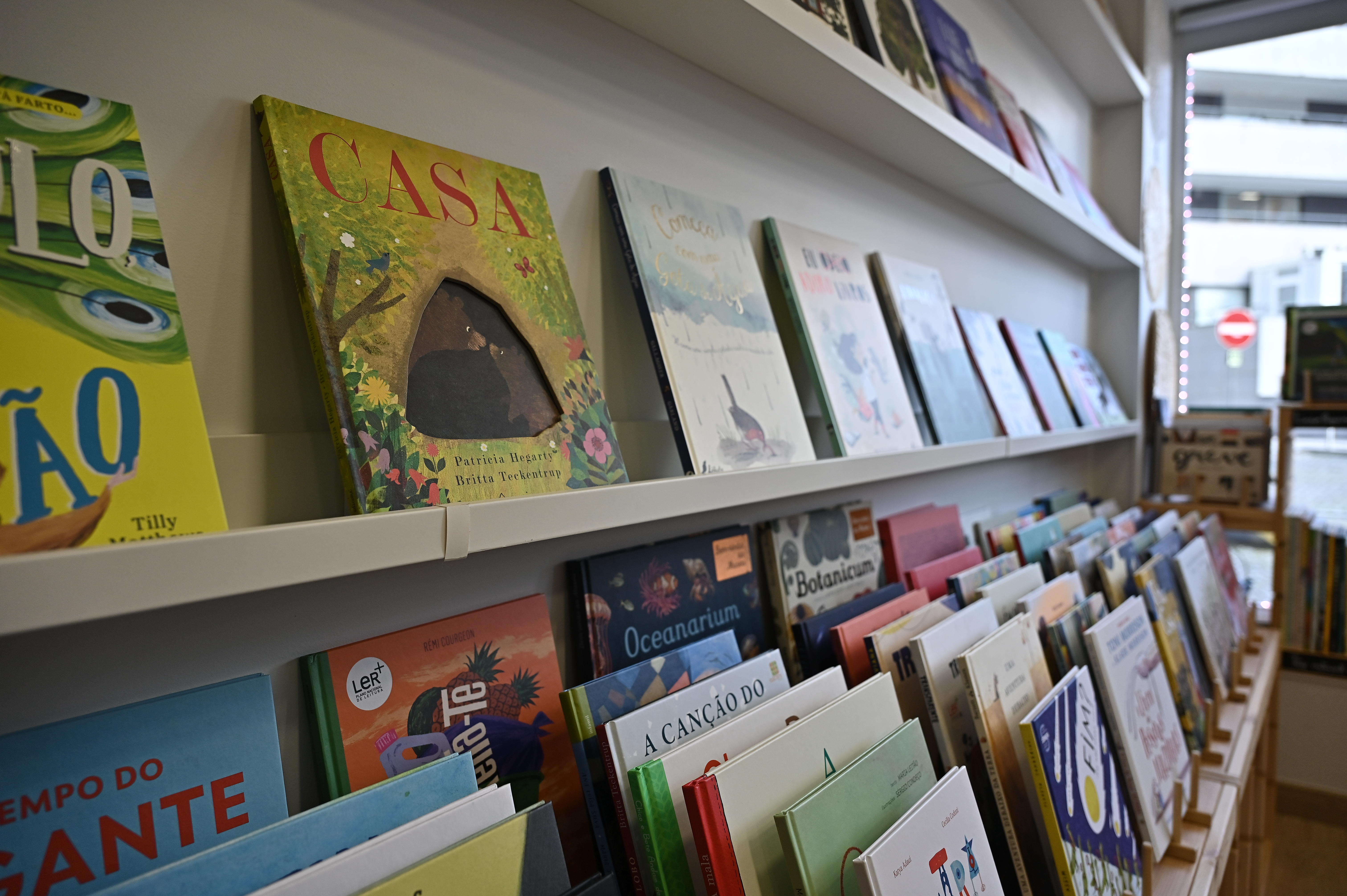
Ave Azul © Rui Meireles
For Maria Inês, the messages in books can be both happy and sad. Children's literature shouldn't shy away from difficult subjects. "We shouldn't hide from children what exists in the world. Making children's literature into a reality that doesn't exist is hardly fair to them." This bookseller argues that war, politics and other current issues should be addressed in the books they are given to read.
Ave Azul will be marking 25 April with a selection of books that deal with political themes. ‘Political issues come up a lot here, and I'm not afraid to make that commitment,’ he says, adding that ‘we need to show things as they are, but we also need a pinch of humour and lightness.’
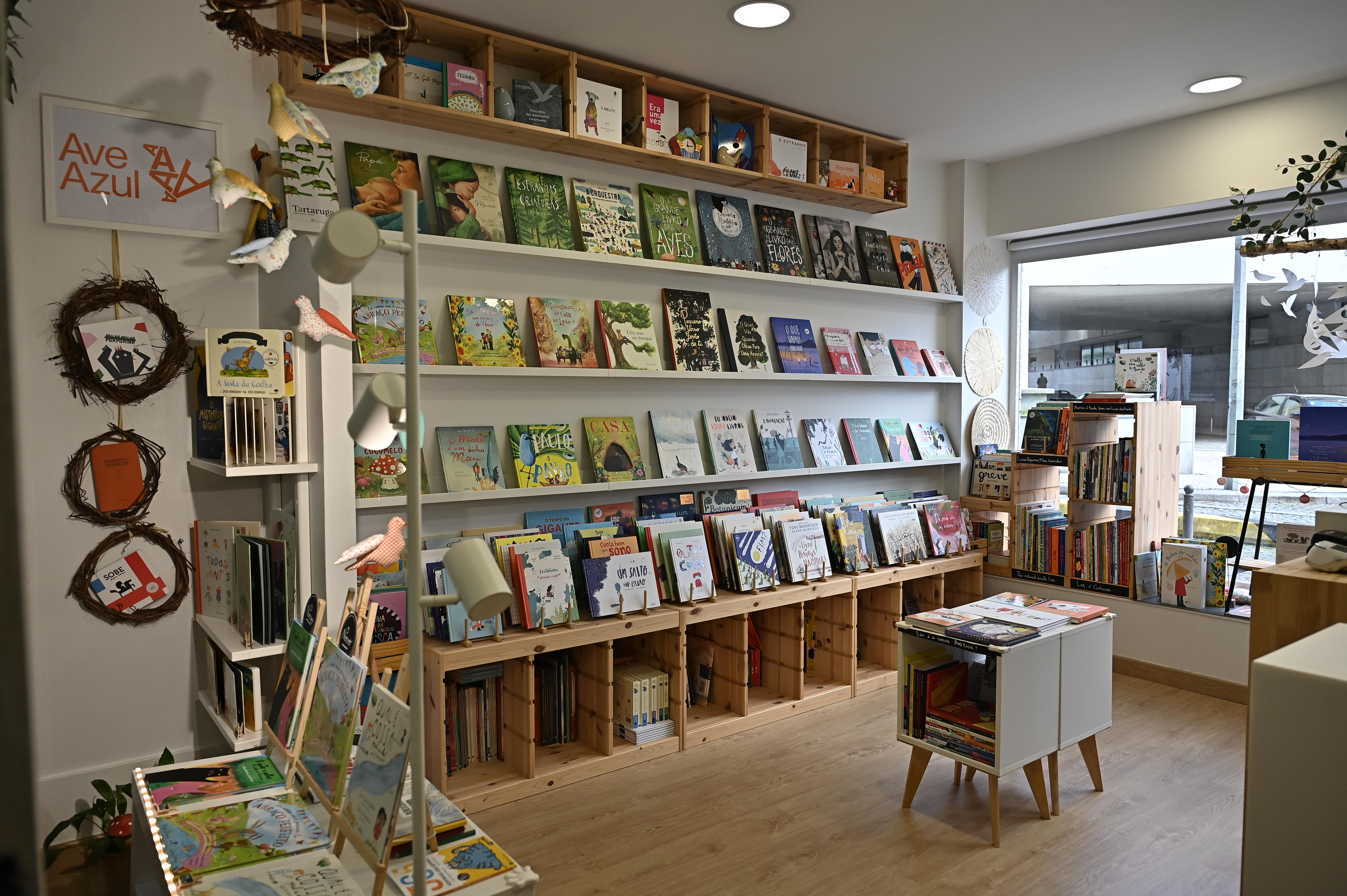
Ave Azul © Rui Meireles
Ave Azul also organises storytelling events and creative workshops. "The book has this dimension of sharing, and the story times we do here are magical moments. Some of the storytellers are already residents and they create a bond with the children who come regularly." The bookshop also hosts book launches and initiatives such as reading with yoga.
On 5 April there will be a Spring Workshop with Albana Lima and Story Time with Teresa Figueiredo. Inspired by her background in philosophy, Maria Inês also created the Hora do Contra, an initiative that invites children to think about and debate important issues. The next event takes place on 26 April with Maria Inês and guest Sofia Azevedo. All events are free of charge, with registration up to two days before the date.
Maria Inês Gomes suggests three books:
O Horizonte,
ilustração de
Carolina Celas
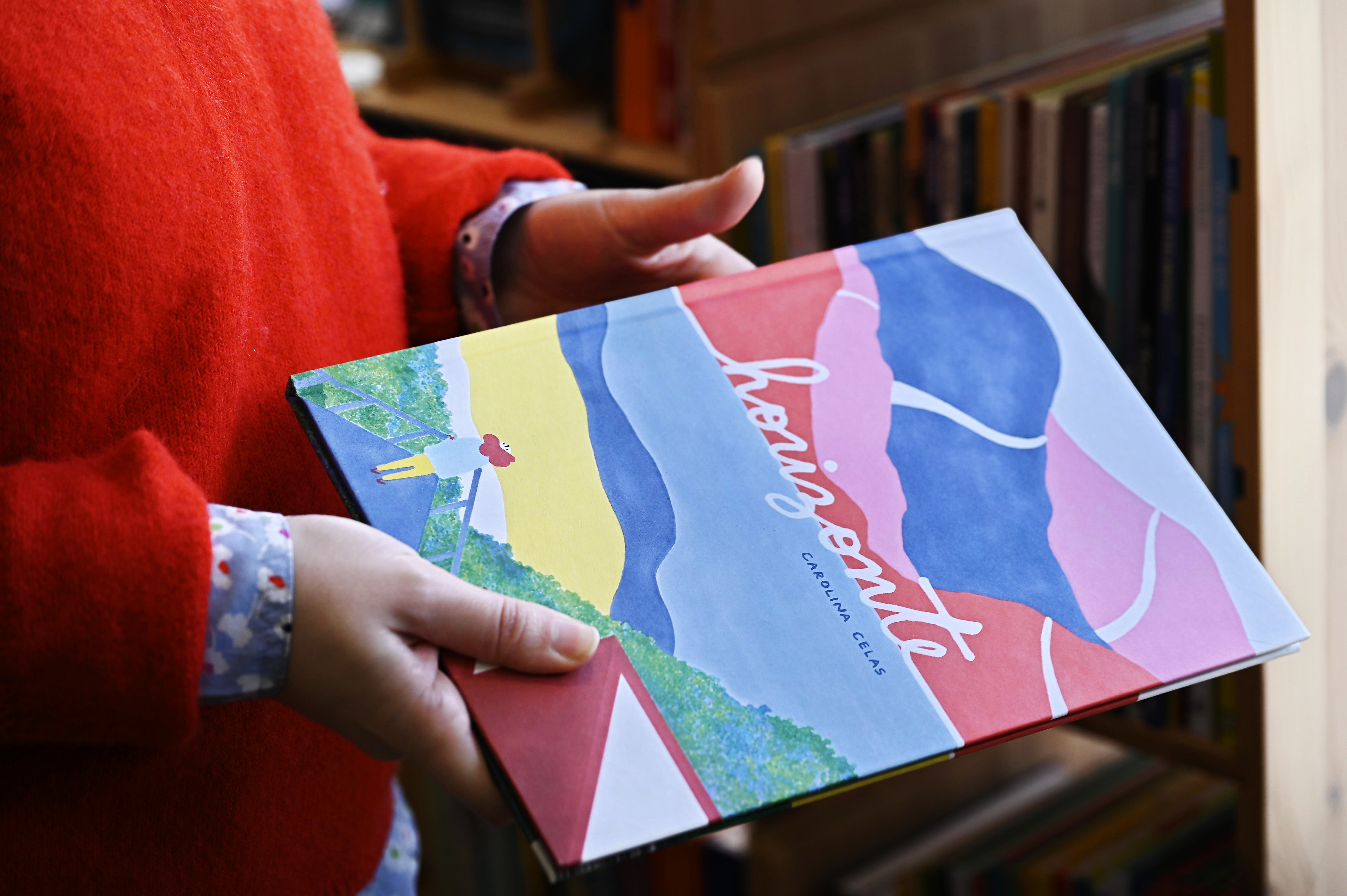
O Ponto em que estamos,
de Isabel Minhós Martins
e BernardoP. Carvalho
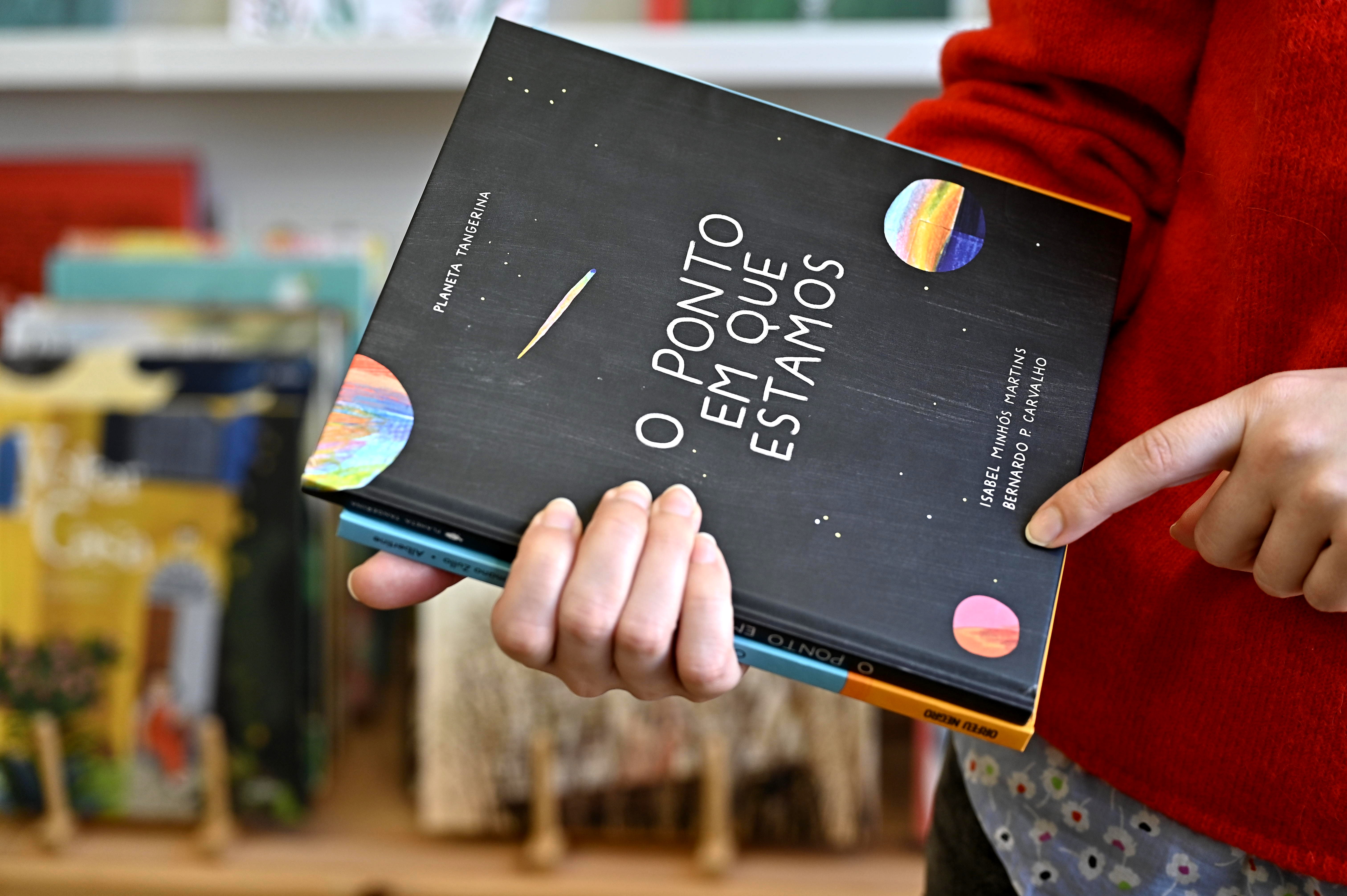
Os Pássaros,
de Germano Zullo e
ilustração de Albertine
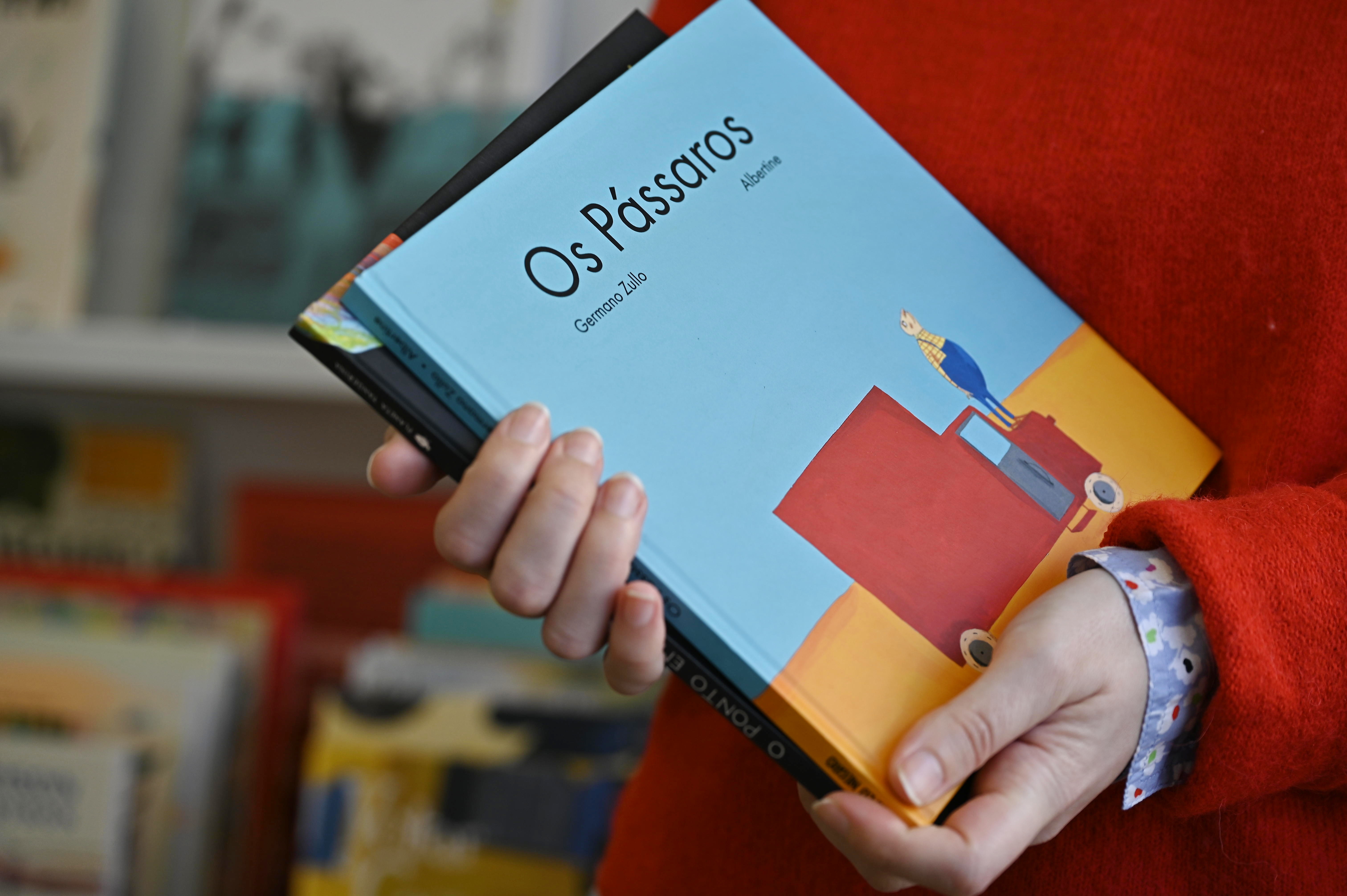
Salta Folhinhas
The book, memory and the value of proximity
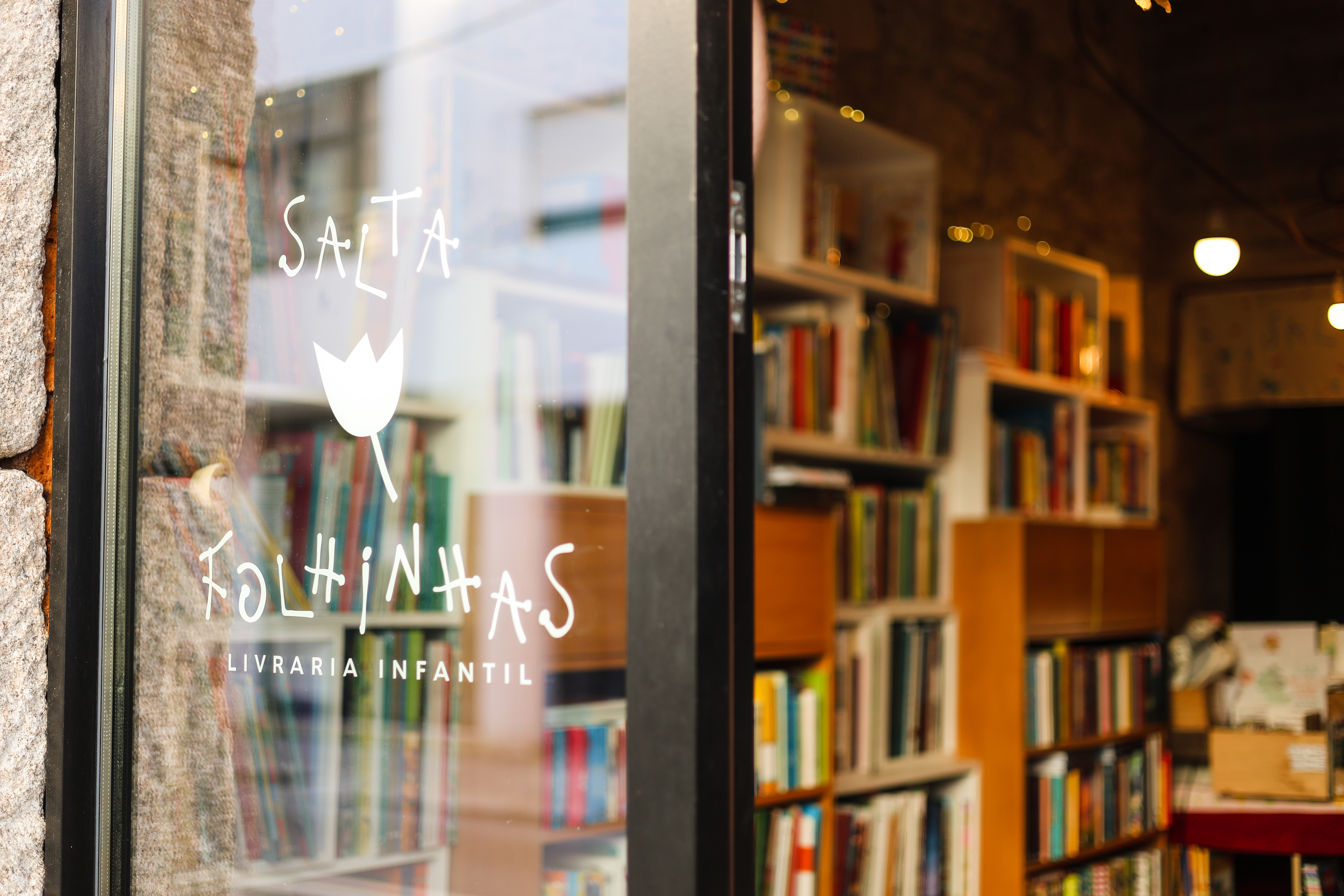
Salta Folhinhas © Inês Aleixo
If there's one name that's already part of Porto's literary memory, it's Salta Folhinhas. Opened more than 20 years ago by Teresa Cunha, the bookshop has changed its address, adapted to the times, but remains steadfast in its purpose: to make known the stories that live in books.
A graduate in electrical engineering, it was through the books she read to her children that she rediscovered her taste for children's literature. "I took the engineering course because my father thought that a student with such good marks in maths couldn't go into literature. I worked at it and felt myself wasting away every day. Until I decided to become a full-time mum and, later, to open the bookshop," she says.
The name came from an unexpected moment. When Teresa announced to her children that she was going to open a bookshop, her middle son exclaimed: ‘It has to be called Puddle Jumper!’ - in honour of Aquilino Ribeiro's Romance da Raposa. The name was refined and Salta Folhinhas was born.
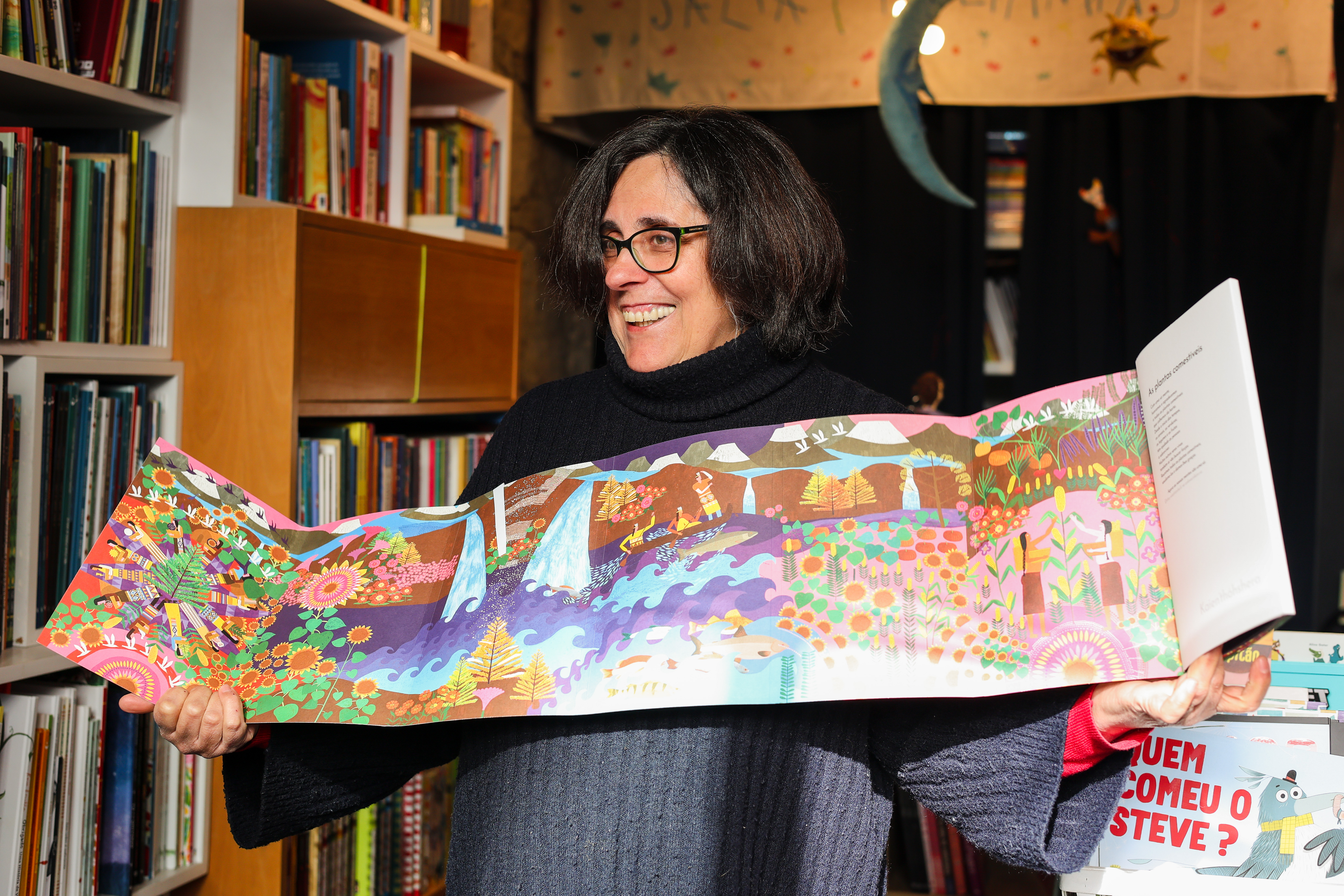
Salta Folhinhas © Inês Aleixo
A small, cosy space where the books are not organised in a conventional way. "My organisation is a bit disorganised. Some publishers' books are together because they have their own style, like those from Planeta Tangerina. Others are organised by age. And then there are those that are difficult to fit into a category - but are unmissable."
Despite the difficulties facing local commerce, Teresa believes in the unique experience of the physical bookshop. ‘More and more people are buying books online, but here all it takes is a conversation to understand what the reader really wants.’
Her role as a bookseller is also not to impose preferences, but to help find the right book. "One day I showed a book to a father and his son; the father rejected it, he wanted something with different images. So I made several books available to them and started telling the story of the book he didn't want. The child was fascinated. In the end, the father chose a book and said he also wanted to take the one from the story I was telling. It turned out to be the book he had refused."
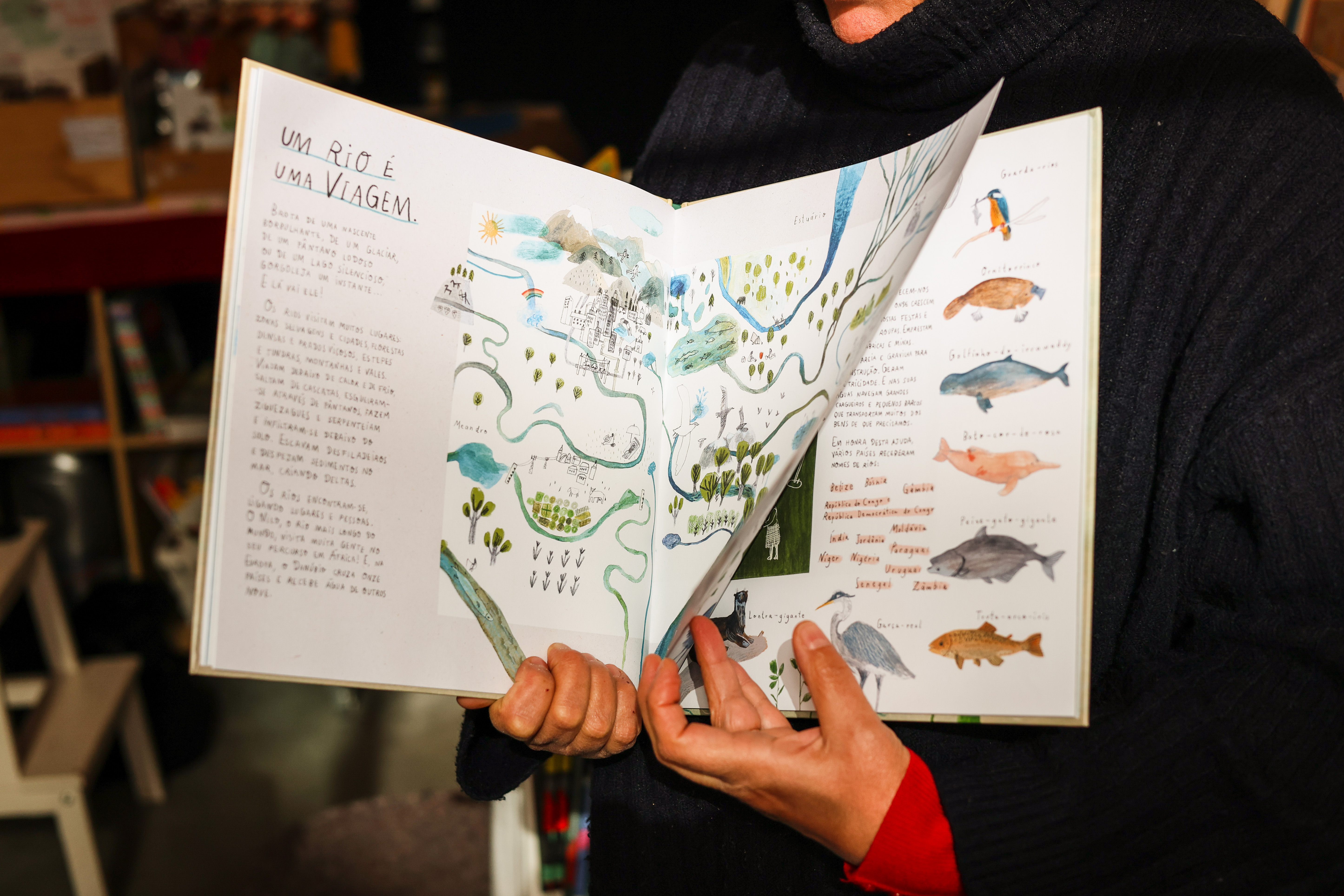
Salta Folhinhas © Inês Aleixo
Like Maria Inês, from the Ave Azul bookshop, Teresa believes that books should tackle all subjects, including difficult ones. "Parents are very afraid of the ugly, the grotesque, the bad. But children have this need." They often only look for books on delicate subjects when the child is going through that experience - and, according to Teresa, that's not the best time. "For example, death should be talked about in moments of happiness. Because the child will process it better. If they're experiencing pain, they won't accept being told about a pain that isn't theirs."
Nor should we be afraid to introduce children to unfamiliar vocabulary. "If the words are used in the right place, in the right way, children assimilate and understand. And later, without realising it, they're using them naturally." This is the case with the book What is a River? by Monika Vaicenaviciene. ‘It's a book that won a non-fiction prize, has very rich, poetic language and beautiful illustrations.’
And then there are books that fascinate adults, such as a text by the Indians of Northern Europe, Thank You, Mother Earth! by Vanina Starkoff. "It's a thanksgiving to the earth, to the world. The book becomes a three-metre-long mural. They are works of art."
Salta Folhinhas isn't just made up of books - it's a space where visual art and writing intersect. Throughout its shelves and walls, there are illustrations and puppets, many of them linked to storytellers. Names such as João Sá, Teresa Guimarães, Sofia Paulino and Cláudia Pinheiro have a presence in the bookshop.
Anyone who visits Salta Folhinhas will recognise this phrase: ‘There were three days and three nights that Salta-Pocinhas - foxy, cunning, shrewd, lickety-split - ran through the woods, sniffing, beating the undergrowth, without being able to lay a nail on another hunt...’ - Like Aquilino Ribeiro's little fox, Salta Folhinhas continues to walk her path - attentive and restless, looking for the next story to tell.
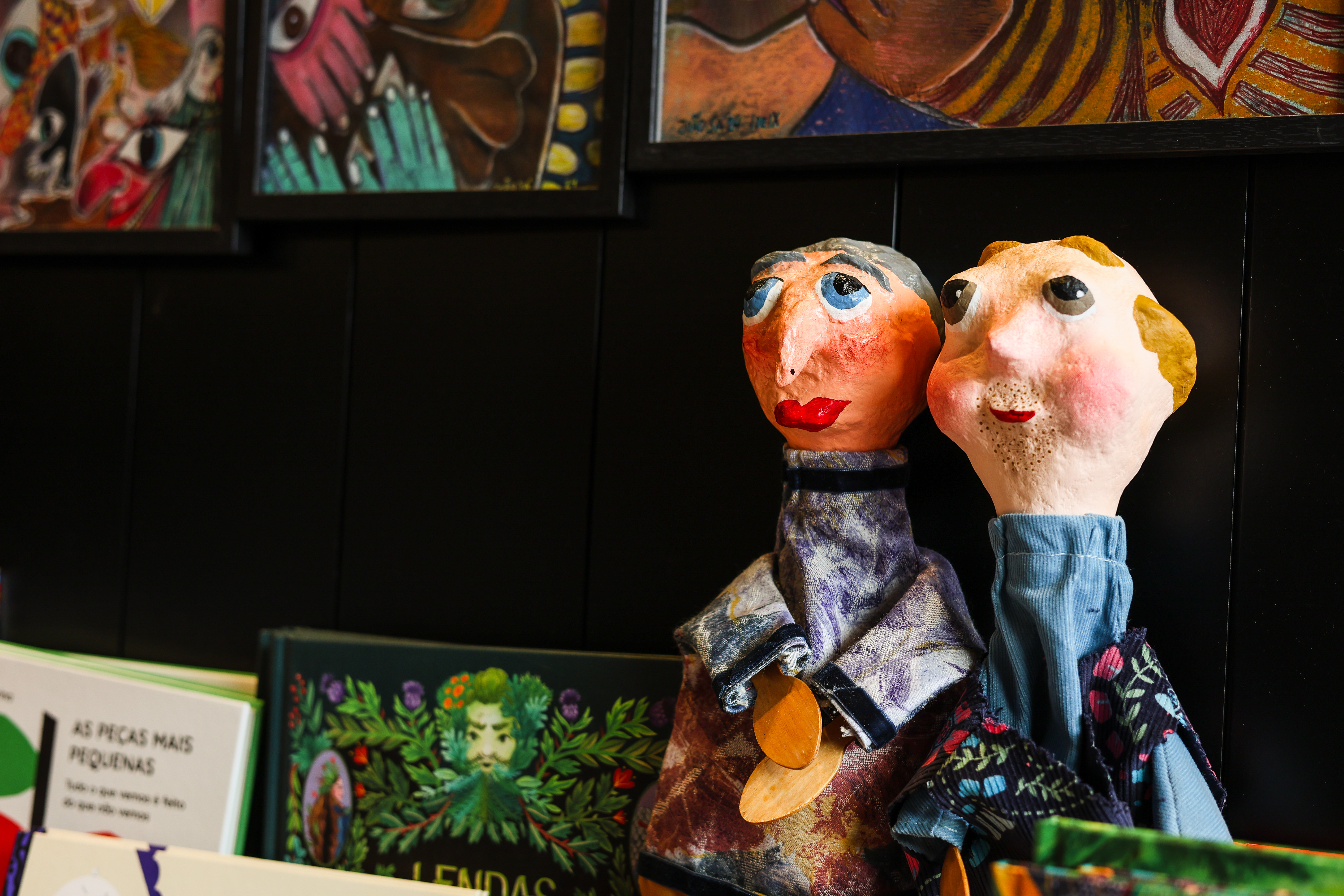
Salta Folhinhas © Inês Aleixo
Teresa Cunha suggests the following books to Agenda Porto readers:
STOP,
de Ricardo Henriques e Ilustração de
Pierre Pratt
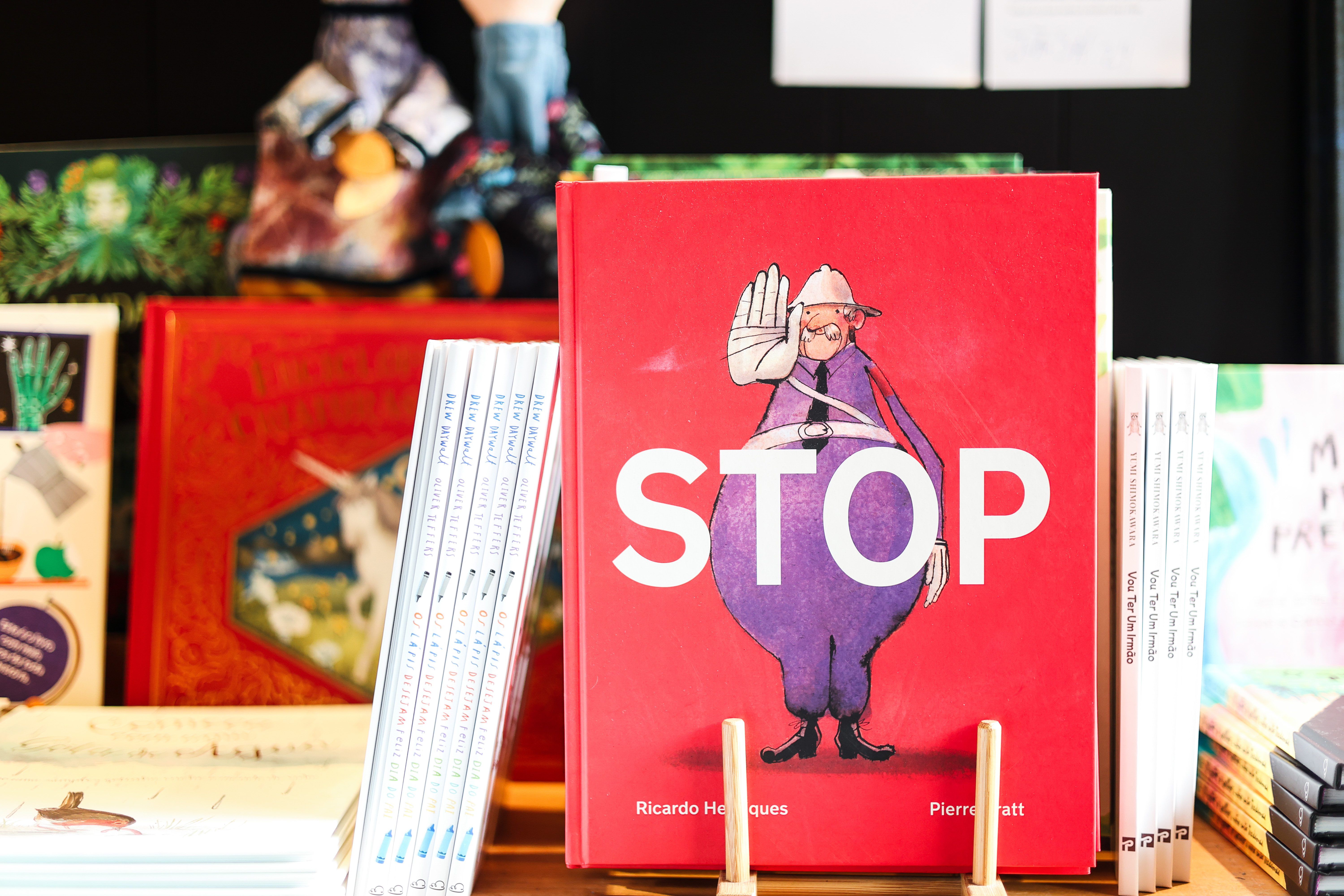
O gato, o coelho e outros contos tradicionais,
de Adélia Carvalho e
ilustração de Anabela Dias
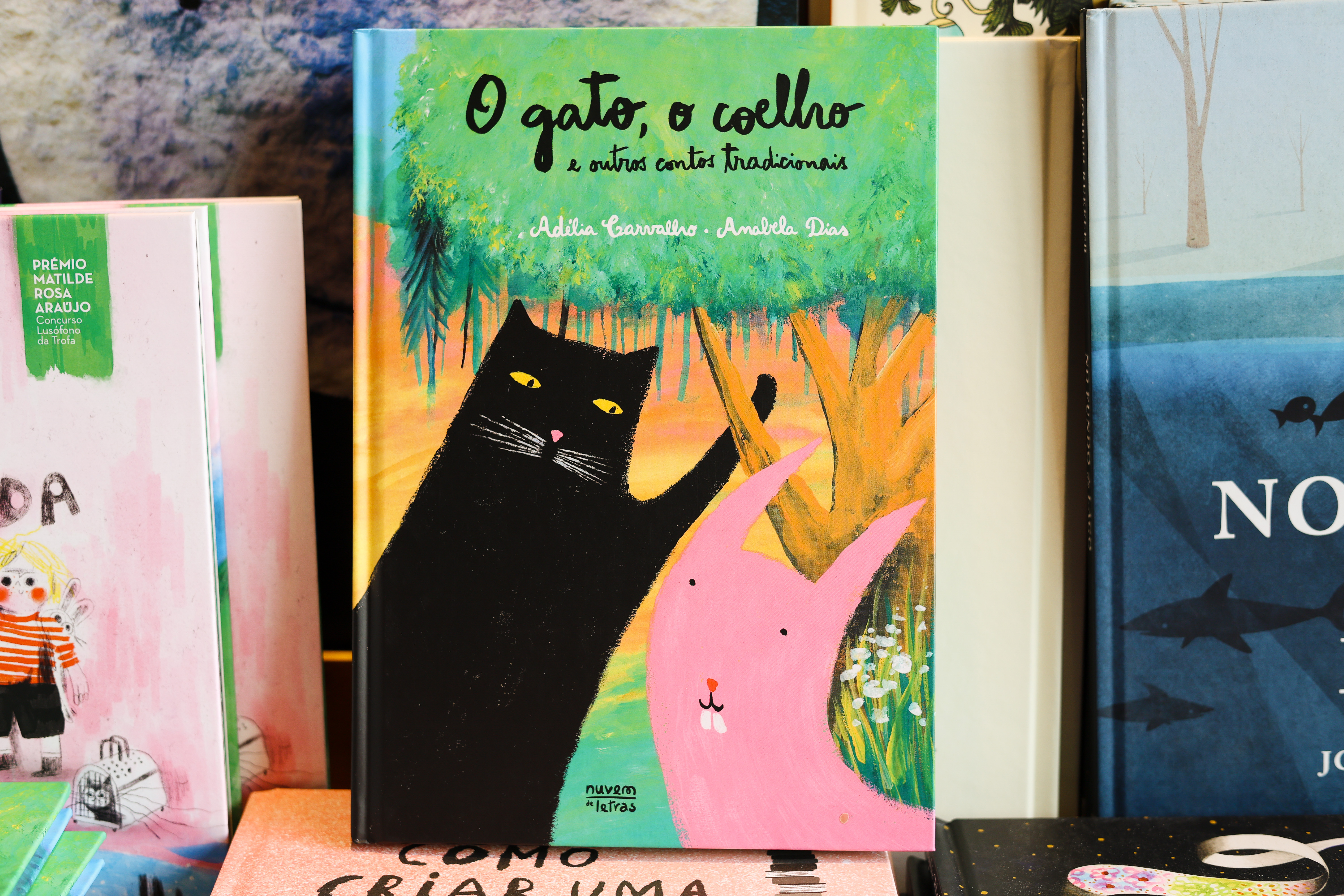
O que é um rio?, de Monika Vaicenaviciene
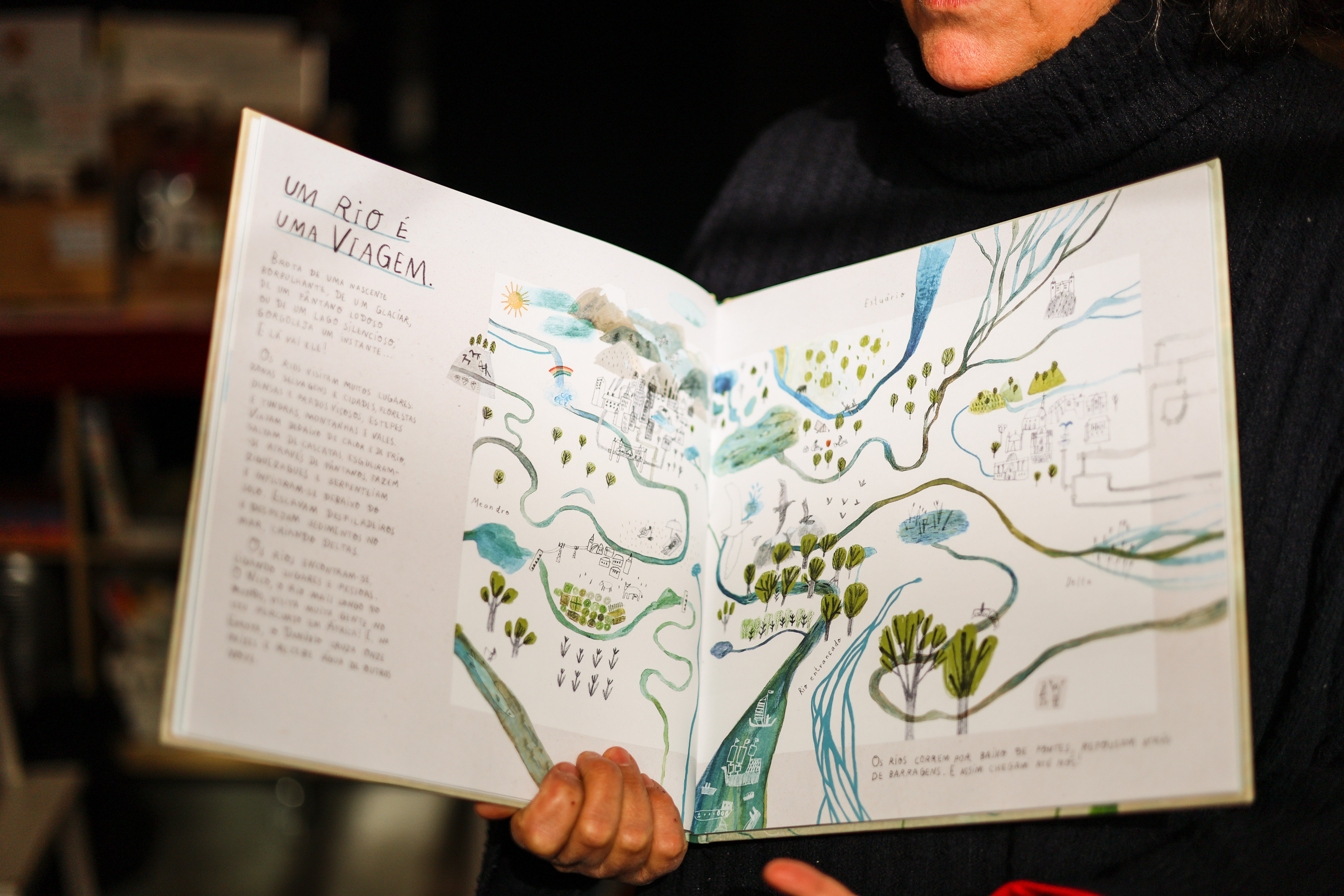
Share
FB
X
WA
LINK
Relacionados



